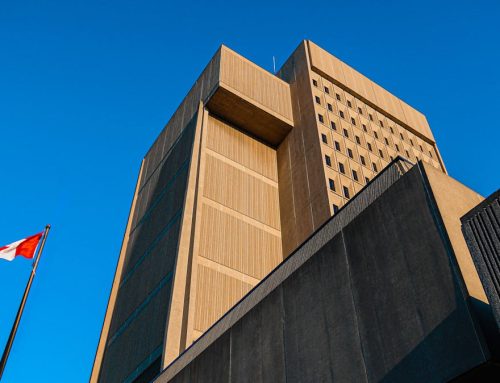DUI charges can have a devastating impact on all aspects of your life, from your time and money to your travel and employment opportunities. One consequence of DUI conviction that is often overlooked, however, is increased insurance rates. Although this may seem unimportant compared to some of the immediate conviction penalties, over time, these rate hikes can end up being very costly.
In this blog, we dive into how a DUI conviction can skyrocket your insurance rates and premiums in BC, what part ICBC plays in the situation, and how a DUI lawyer can help you if you are facing impaired driving charges.
What Constitutes a DUI in British Columbia?
Driving under the influence (DUI) or impaired driving in British Columbia is legally defined as operating a vehicle—be it a car, motorcycle, or even a boat—while your ability to do so is impaired by alcohol or drugs. The legal threshold for blood alcohol concentration (BAC) is 0.08%. This means that having a BAC at or above 0.08% is grounds for a DUI charge if you are found operating a vehicle.
How Conviction is Determined
The determination of a DUI conviction begins with law enforcement intervention. This could occur through roadside checks or if an officer suspects impairment because of observable behaviours, such as erratic driving. If suspected of DUI, you are typically required to perform a sobriety test on the spot, which might include a breathalyzer test to measure your BAC. Failure to comply with this test itself can lead to DUI charges.
Following an arrest, your legal process may involve several stages such as an arraignment, pre-trial motions, and potentially a trial. Throughout this process, both the prosecution and your defence team present evidence and argue the case before a judge or jury. The court system then adjudicates the case based on the evidence and legal standards.
Consequences of a DUI Conviction
If you are found guilty of impaired driving and convicted, you may face immediate consequences, including fines, license suspension, and potentially jail time (depending on the severity of the offence and prior history). Long-term effects extend to the acquisition of a criminal record, which can impact future employment and travel opportunities.
Your car insurance rates will spike upwards too. Following a DUI, your insurance company will likely reassess your policy and either increase your premiums or cancel the insurance policy entirely, and ICBC will charge you an additional premium.
The ICBC and Insurance Rates
As the sole provider of basic auto insurance in BC, the Insurance Corporation of British Columbia (ICBC), plays a central role in overseeing auto insurance within the province. While BC residents can purchase additional coverage, like comprehensive insurance and collision insurance, from private insurance providers, ICBC handles much of the regulation.
Insurance rates are determined by various factors, including driving history, the frequency of traffic violations, the type of vehicle and risk assessment. ICBC evaluates these factors to calculate individual premiums, with high-risk drivers typically facing higher rates.
How Does a DUI Affect Car Insurance Rates in BC?
After a DUI conviction in British Columbia, your insurance rates can spike upwards due to the elevated risk you pose as a driver. ICBC views DUI convictions as serious infractions that indicate a higher likelihood of future accidents. As a result, ICBC applies a Driver Risk Premium (DRP) to individuals with driving-related Criminal Code convictions, including DUIs.
The DRP is separate from standard insurance premiums and is based on the number of convictions a driver has accumulated over a three-year period. For instance, a single DUI conviction can lead to a substantial increase in premiums. As of October 1, 2021, the DRP amounts for DUI convictions range from $1,108 for a first conviction to over $29,000 for five or more convictions.
Steps You Can Take to Save Money on Your DRP
Although the DRP can be draining financially, there are steps you can take to alleviate some of these pressures. One option is to give up your driver’s license for the entire billing period, which could eliminate the DRP premium. Alternatively, if you give up your license for at least 30 days during the billing period, you may qualify for a reduction in the Driver Risk Premium.
If you do not choose either of these avenues, however, and you don’t take the initiative to showcase your commitment to safe driving practices like enrolling in a defensive driving course, your insurance coverage and premiums may stay elevated for several years (usually 3 to 5 years).
How DUI Lawyers Make a Difference
Hiring a DUI lawyer can make a huge difference in lessening the consequences of a DUI charge, especially when compared to those who choose to go without legal representation. An experienced lawyer understands the complexities of DUI laws and will explore all legal avenues to defend your case.
This may include questioning the accuracy of the BAC test, the legality of the traffic stop, or other procedural discrepancies that could affect the validity of the charge. Legal representation is an asset during trials and negotiations; a skilled attorney can negotiate lesser penalties or alternative sentencing that minimizes the impact on your life.













